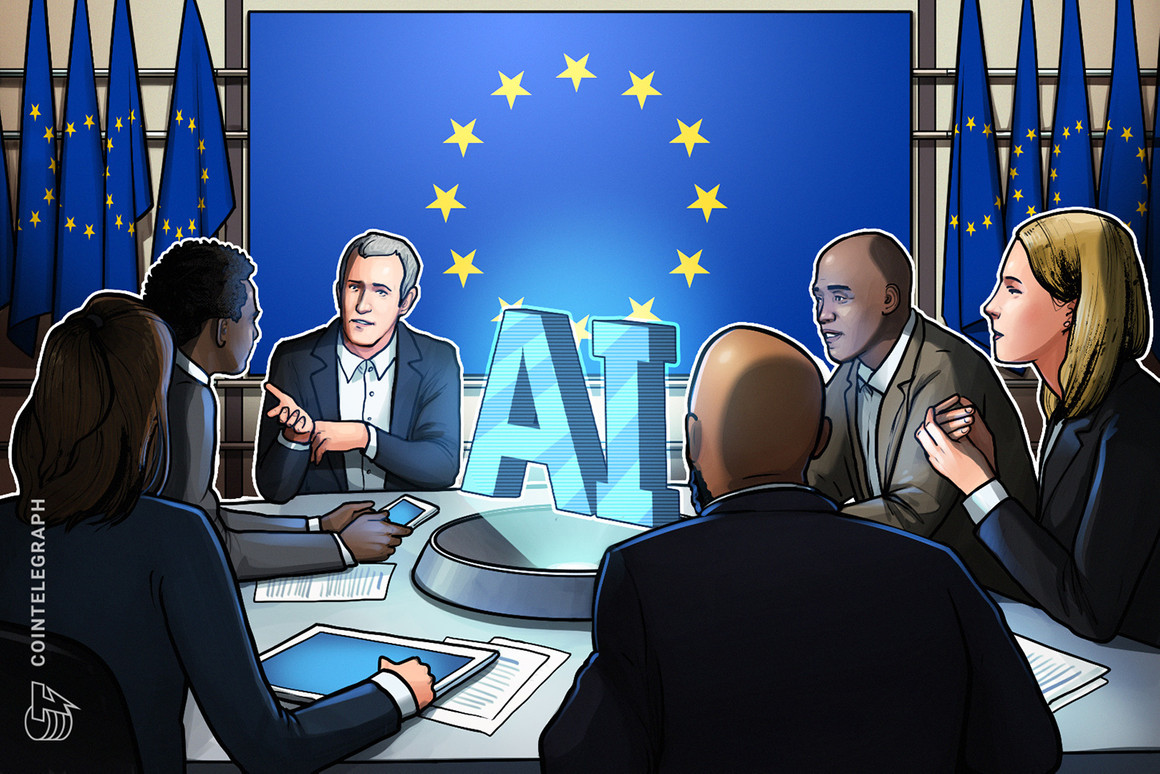In April 2021, the European Commission presented its proposal for harmonized rules on artificial intelligence (AI), dubbed the Artificial Intelligence
In April 2021, the European Commission presented its proposal for harmonized rules on artificial intelligence (AI), dubbed the Artificial Intelligence Act (AI Act). After the Council of the European Union and the European Parliament finalized their positions in December 2022 and June 2023, the legislative institutions entered a trilogue on the upcoming AI regulation.
The negotiations can be challenging due to the significant differences between the Parliament and the Council on specific issues such as biometric surveillance. In Germany, political groups and digital experts are also concerned about proposed changes to the AI Act.
Die Linke calls for stricter regulation and transparency
The German left party Die Linke highlighted significant gaps in European AI regulation, particularly regarding consumer protection, and obligations for AI providers and users.
It wants to require high-risk systems — including AI systems that pose a high risk to health, safety and the fundamental rights of natural persons — to be checked for compliance with the regulation by a supervisory authority before these AI systems are launched on the market. Die Linke has suggested that the German government appoint at least one national supervisory authority and provide sufficient financial resources to fulfill this task.
“Politics must ensure that a technology that is significant for everyone but controlled by only a few is supervised by a regulatory authority and proven trustworthy before its implementation,” said Petra Sitte, a politician from Die Linke, adding:
“Therefore, do not let yourself be blackmailed by lobbyists of big technology corporations. We can also strengthen an open-source approach in Europe […], meaning that a programming code is accessible to everyone.”
Die Linke also advocates an explicit ban on biometric identification and classification systems in public spaces, AI-driven election interference, and predictive policing systems.
According to the party, the exception for scientific AI systems specified in the AI Act should not apply if the system is used outside research institutions. Die Linke is already calling on the German government to develop training programs on the capabilities and limitations of AI systems, and to evaluate AI systems used in government operations annually “using a standardized risk classification model,” as well as registering them in an AI registry.
The Union prioritizes innovation and openness
Conversely, the center-right coalition of the Christian Democratic Union of Germany and the Christian Social Union in Bavaria — also known as “the Union” — emphasized that AI should not be overly regulated. It advocates for the federal government to prioritize AI and an innovation-friendly environment in Europe.
Regarding the trilogue negotiations, the Union noted its position paper, claiming that generative AI will enable German and European companies to excel internationally. The party wants to avoid the establishment of a large supervisory authority in Brussels, as well as differences in the implementation of the AI law in EU member states. While advocating for sharper definitions, it also suggests ensuring legal certainty by aligning with the General Data Protection Regulation, the Data Act and the Digital Markets Act.
Recent: Existential threat? Why some banks are anxious about CBDCs
The Union also makes concrete proposals to secure Germany’s technological sovereignty in AI. Recognizing the challenges of building an entirely new infrastructure in a realistic timeframe, the party recommends expanding the existing supercomputing infrastructure of the Gauss Center for Supercomputing. It also proposes that German and European startups, small- and medium-sized enterprises (SMEs), and open-source developers be given dedicated access to this infrastructure.
To encourage the growth of German AI startups, the Union suggested such small businesses be awarded government contracts.
In addition, the Union highlighted an investment gap in university spin-offs and open-source AI, and advocated for targeted support through national initiatives such as the Sovereign Tech Fund. Given the widespread use of AI in various educational institutions, organizations and companies, the Union highlighted the urgent need to establish local systems to prevent accidental information leakage.
The German AI Association requires practical solutions
The German AI Association (KI Bundesverband), Germany’s largest industry association for AI representing more than 400 innovative SMEs, startups and entrepreneurs, also advocates for openness to innovation.
It’s here! Our new position paper on the EU’s Artificial Intelligence Act (#AIAct) highlights the key issues that need to be addressed in the upcoming #trilogue negotiations. Thanks to all our contributors! ➡ https://t.co/kHR5cL5VJ0 pic.twitter.com/MtbefMDlUO
— KI Bundesverband (@ki_verband) July 4, 2023
“Europe must therefore be able…
cointelegraph.com
